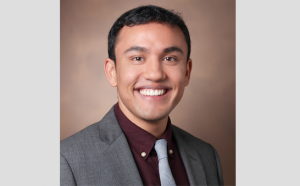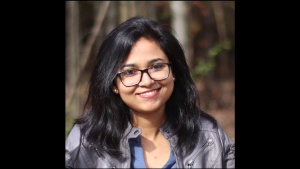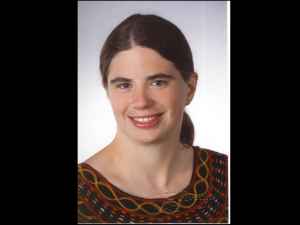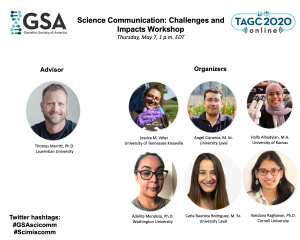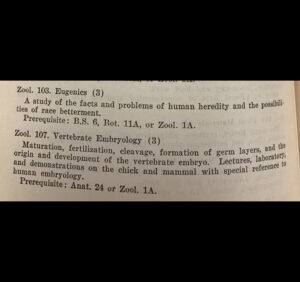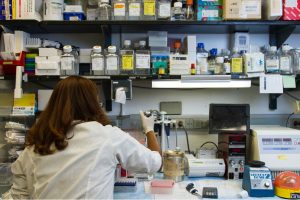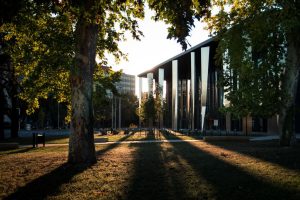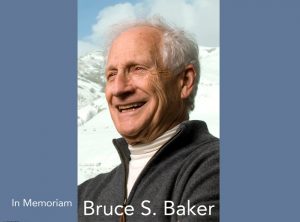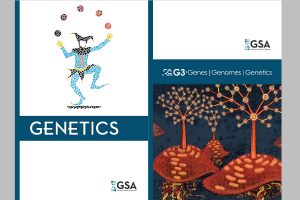Enter your address to receive notifications about new posts to your email.
Community Voices
-
Community Voices
Early Career Scientist Leadership Spotlight — Jacob L. Steenwyk
We’re taking time to get to know the members of the GSA’s Early Career Scientist Committees. Join us to learn more about our 2020 early career scientist advocates. Jacob L. Steenwyk Communications & Outreach Subcommittee Howard Hughes Medical Institute James H. Gilliam Fellow Biological Science Department, Vanderbilt University, Nashville, TN Research Interest Broadly, I am interested…
-
Community Voices
The new normal is the new beautiful
As COVID-19 has spread across the world, members of the GSA community have faced unprecedented challenges in their professional and personal lives. To stay connected during this socially distant time, GSA invites the scientists in our community to share how they are meeting these challenges, as well as their questions and worries. If you would…
-
Community Voices
Early Career Scientist Leadership Spotlight — Nashrah Ahmad
We’re taking time to get to know the members of the GSA’s Early Career Scientist Committees. Join us to learn more about our 2020 early career scientist advocates. Nashrah Ahmad Communication & Outreach Subcommittee Kent State University Research Interest Osteoarthritis (OA) is the most common form of…
-
Community Voices
Early Career Scientist Leadership Spotlight — Małgorzata Gazda
We’re taking time to get to know the members of the GSA’s Early Career Scientist Committees. Join us to learn more about our 2020 early career scientist advocates. Małgorzata Anna Gazda Career Development Subcommittee (2019/20), Steering Subcommittee (2020-present) University of Porto, Portugal Research Interest Have you ever…
-
Community Voices
Recap and resources from the TAGC 2020 Science Communication workshop
In late 2019, Thomas Merritt approached the members of the Communication & Outreach Subcommittee of the GSA Early Career Leadership Program about submitting a proposal for The Allied Genetics Conference (TAGC) 2020. The members of the subcommittee jumped at the opportunity, and a group of six submitted a full proposal, which the Genetics Society of…
-
Community Voices
Understanding our eugenic past to take steps towards scientific accountability
Guest author Rori Rohlfs describes a unique classroom project for exploring the eugenic history of our field. I was a fourth-year graduate student when I found myself asking a librarian for the archives of the journal The Annals of Eugenics. I got to that point by climbing back through a chain of references on fundamental…
-
Community Voices
Principal investigators on how COVID-19 is affecting their labs
As COVID-19 spreads across the world, members of the GSA community have had to face unprecedented challenges in their professional and personal lives. To stay connected during this socially distant time, GSA invites the scientists in our community to share how they are meeting these challenges, as well as their questions and worries. If you…
-
Community Voices
Early career scientists on how COVID-19 is affecting them
As COVID-19 spreads across the world, members of the GSA community have had to face unprecedented challenges in their professional and personal lives. To stay connected during this socially distant time, GSA invites the scientists in our community to share how they are meeting these challenges, as well as their questions and worries. If you…
-
Community Voices
Finding positivity during COVID-19 lockdown
As COVID-19 spreads across the world, members of the GSA community have had to face unprecedented challenges in their professional and personal lives. To stay connected during this socially distant time, GSA invites the scientists in our community to share how they are meeting these challenges, as well as their questions and worries. If you…
-
Community Voices
In Memoriam: Gordon Lark
We are sad to report that Dr. Karl Gordon Lark died on April 10th, 2020 from an aggressive form of prostate cancer. Karl Gordon Lark was born on December 13th, 1930 in Lafayette, Indiana to Karl and Betty Lark-Horovitz. His father was a physicist with an interest in biology. Gordon entered the University of Chicago…
-
Community Voices
GSA Journals Spotlight 2019
The GSA Journals, GENETICS and G3: Genes|Genomes|Genetics, are proud to present our annual Spotlight booklets for research published in 2019. Each Spotlight is a showcase of the excellent research and scholarship published over the course of the year, along with a selection of striking images submitted by our authors. Browse the 2019 GENETICS Spotlight. Browse the 2019 G3 Spotlight.

